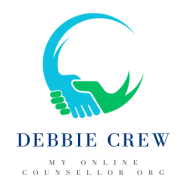Relationships are intricate dances of emotions, thoughts, and behaviours. Our interactions with loved ones often feel automatic, like we’re reciting a memorized script we didn’t even know we had. The concept of Parent and Child egos, rooted in Transactional Analysis can often explain this phenomenon (TA). By understanding these roles, recognising our triggers, and learning to step out of these patterns, we can build healthier, more conscious connections.
The Parent and Child Egos Explained
Transactional Analysis describes three “ego states” we operate from:
1. Parent: The voice of authority, shaped by our caregivers. It’s where we store rules, judgments, and nurturing instincts. It can be:
- Critical Parent: Directive, judgmental, and enforcing rules.
- Nurturing Parent: Caring, supportive, and protective.
2. Child: The part of us that feels, reacts, and remembers experiences. It can be:
- Free Child: Spontaneous, curious, and playful.
- Adapted Child: Submissive, rebellious, or seeking approval.
3. Adult: The rational, present-focused state that evaluates situations objectively and responds thoughtfully.
In relationships, much of our conflict or connection happens when we slip into parent or child roles without realising it.
How Parent and Child Egos Impact Relationships
1. When You’re in the Parent Role:
- You might say things like, “Why can’t you ever do this right?” or “I’m only doing this for your own good.”
- This can trigger your partner’s Adapted Child, making them feel criticised, inadequate, or defensive.
2. When You’re in the Child Role:
- You might feel overly dependent, saying, “Why won’t you just take care of it for me?” or rebelling, “You can’t tell me what to do!”
- This can pull your partner into the Critical Parent role, escalating the dynamic.
These roles aren’t inherently bad—they’re natural and sometimes necessary. For example, the Nurturing Parent can offer comfort when a partner is vulnerable, and the Free Child can inject fun into a relationship. Problems arise when we get stuck in these states, especially when triggered by past wounds.
Recognising the Triggers
Triggers often stem from unmet needs or unresolved issues from childhood. To recognise them:
- Notice your reactions: Do you feel unusually defensive, angry, or helpless in certain situations?
- Identify patterns: Are there recurring arguments where you always feel like the “nagging parent” or “needy child”?
- Reflect on the past: Ask yourself, “Does this remind me of how I felt growing up?” For instance:
- If you felt criticised as a child, your partner’s feedback might trigger your Adapted Child to feel defensive.
- If you felt unsupported, you might slip into a Critical Parent role to avoid feeling vulnerable.
Breaking Free from the Parent-Child Trap
The goal isn’t to eliminate these roles, but to bring awareness to them so you can consciously choose how to respond. Here’s how:
1. Step into Your Adult Ego State:
- Pause before reacting and ask yourself, “What is happening here and now?”
- Focus on facts, not emotions tied to the past. For example:
- Instead of saying, “You never listen to me!” (Critical Parent), try, “I feel unheard when you’re on your phone during our conversations.”
2. Reframe the Interaction:
- If you feel like the Parent, ask: “Am I offering guidance or trying to control?”
- If you feel like the Child, ask: “Am I seeking connection or avoiding responsibility?”
- This shift can open a space for healthier communication.
3. Communicate Openly:
- Share your triggers with your partner and invite them to do the same. For instance, “I realise I sound critical sometimes, but it’s because I worry about being ignored. Can we work on this together?”
4. Practice Emotional Regulation:
- Ground yourself when you feel triggered. Techniques like deep breathing, journaling, or even a short walk can help you respond instead of react.
5. Seek Balance in Roles:
- Healthy relationships thrive when partners can fluidly move between roles. Be playful (Free Child) when appropriate, supportive (Nurturing Parent) when needed, but always strive to return to the Adult state for problem-solving.
Building Relationships Rooted in Awareness
Understanding the Parent and Child egos can transform how we relate to others. By recognising these roles and their triggers, we can stop old patterns from hijacking our relationships. Instead of replaying the scripts of the past, we can co-create a present that feels balanced, respectful, and loving.
The next time you say, “Why do they always react this way?” pause and ask, “Am I speaking from my Adult self—or an old Parent or Child role?” That awareness is the first step toward breaking free and building deeper connections.

